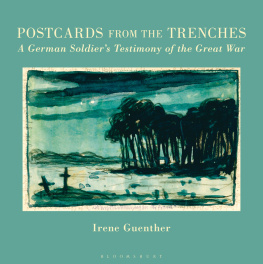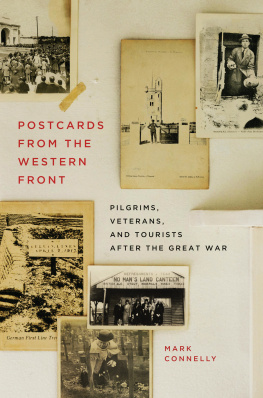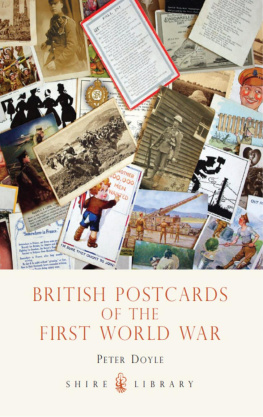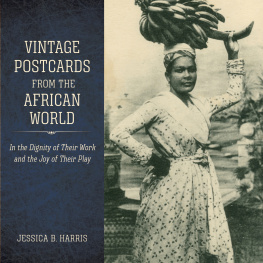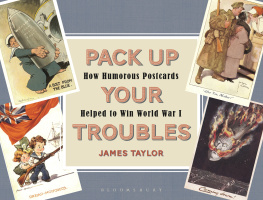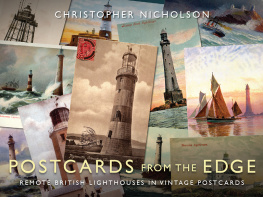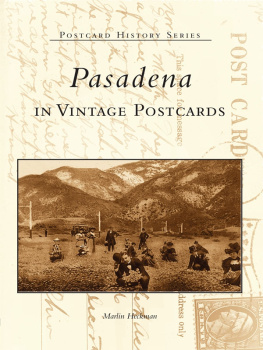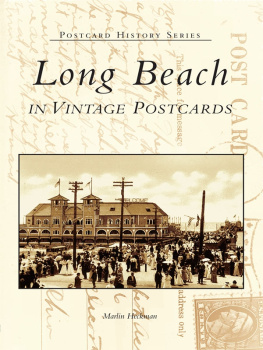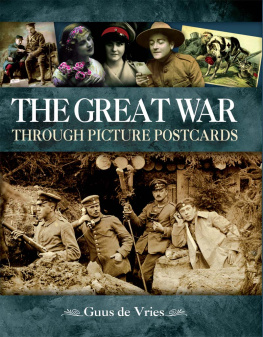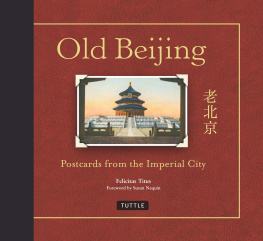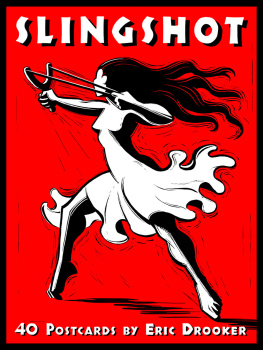POSTCARDS
FROM THE TRENCHES
[The author] has found an ideal way to use microhistory to tell a universal story of young lovers separated by war. The postcards are strikingly beautiful and intimate, and describe sentiments which existed in every combatant army on every single front of the war.
Jay M. Winter, author of War Beyond Words, and Charles J. Stille Professor of History, Yale University, US
In 1916 Otto Schubert, a young German artist, faced a future as chaotic and destructive as the war from which he had returned. His output, dispersed or lost as the result of another war and the vicissitudes of German politics, has now been recovered in this beautiful and moving book. Irene Guenther has brought good luck and careful research to lay bare the artistic achievement of an ordinary man in extraordinary times.
Hew Strachan, author of The First World War, and Emeritus Fellow, All Souls College, University of Oxford, UK
Guenther has clearly and profoundly uncovered an important but heretofore neglected artist whose works speak to the universal issues of war and remembrance. A critical art historical and cultural intervention into 20th century German art and a superb tour de force!
Marion F. Deshmukh, author of Max Liebermann: Modern Art and Modern Germany and Robert T. Hawkes Professor of History, emerita, George Mason University, US
This book on the wartime postcards of a German artist who served on the battlefield deals with a compelling but under-researched subject in art-historical scholarship. [An] intimate, personal account of the Great War frontline experience. The postcards themselves are poignantly beautiful objects, and this work will finally bring to a wider readership the work of a key German war artist.
Ann Murray, University College Cork, Ireland

BLOOMSBURY VISUAL ARTS
Bloomsbury Publishing Plc
50 Bedford Square, London, WC1B 3DP, UK
1385 Broadway, New York, NY 10018, USA
BLOOMSBURY, BLOOMSBURY VISUAL ARTS and the Diana logo are trademarks of Bloomsbury Publishing Plc
First published in Great Britain 2018
Copyright Irene Guenther, 2018
Irene Guenther has asserted her right under the Copyright, Designs and Patents Act, 1988, to be identified as Author of this work.
For legal purposes the Acknowledgements on pp. viiiix constitute an extension of this copyright page.
Cover design by Catherine Wood
Cover image: Evening Mood at the Front by Otto Schubert, 23 January 1916. Authors Collection
All rights reserved. No part of this publication may be reproduced or transmitted in any form or by any means, electronic or mechanical, including photocopying, recording, or any information storage or retrieval system, without prior permission in writing from the publishers.
Bloomsbury Publishing Plc does not have any control over, or responsibility for, any third-party websites referred to or in this book. All internet addresses given in this book were correct at the time of going to press. The author and publisher regret any inconvenience caused if addresses have changed or sites have ceased to exist, but can accept no responsibility for any such changes.
A catalogue record for this book is available from the British Library.
| ISBN: | PB: | 978-1-3500-1575-3 |
| ePDF: | 978-1-3500-1576-0 |
| ePUB: | 978-1-3500-1577-7 |
To find out more about our authors and books visit www.bloomsbury.com and sign up for our newsletters
To all the lives lost in the volcano of war
Contents
I have accumulated a large debt of gratitude to many people friends and strangers who willingly gave their time, shared their knowledge, offered suggestions and research leads, and became so moved by Otto Schuberts wartime postcards and interested in his enigmatic life that they took up their own searches for pieces to the Schubert puzzle. I am especially grateful to Marion Deshmukh, art and cultural historian, and the earliest and most pivotal supporter of this project. Upon seeing Schuberts postcards, she insisted that we introduce them to a larger public. Her farsightedness and unflagging enthusiasm for Schuberts art led to our deepening friendship and our centennial exhibition, Postcards from the Trenches: Germans and Americans Visualize the Great War. It was with the same fervor that she filled the roles of cheerleader and colleague as I worked on this book. Her insightful comments on each chapter were invaluable to me.
My gratitude also goes to Jay Winter. His groundbreaking work on the Great War, on the ways in which individuals, families, communities, and artists experienced, grieved, remembered, and memorialized the four-year conflict and its shattering consequences, has profoundly shaped my understanding of the sources. His influence is woven into the pages of this book. Many thanks also go to the anonymous readers of the proposal and manuscript, whose sage advice and thoughtful suggestions substantively improved the final version.
Special thanks for their meaningful contributions go to Ilse Baker, who initially helped me decipher Schuberts scribbled messages; Silke and Mathias Bugge, who, at a moments notice, refined my translations of postcard passages and letters to archives; Annemarie Wagner, whose magnanimous offer to help resulted in the discovery of documents that were key to filling in the gaps of Schuberts biography; Frank Kempe, of Galerie Saxonia in Munich, who answered my countless questions; and Alexander Atanassow, whose knowledge of Dresdens archives, sleuthing skills, and willingness to help were priceless to this project. Heartfelt thanks also go to Charlie Soparkar, whose surgical skill and friendship kept my eyes functioning; to Suzanne Deal Booth, Sandi Sykora Ross, Beth Madison, and Susie Soparkar, all of whom so generously infused the Schubert World War One Kickstarter; to Bill Monroe, Honors College Dean, University of Houston, whose enthusiasm for this project has been unstinting; to my University of Houston friends who have been so supportive of the exhibition and book, especially Debbie Harwell, Sarah Fishman, and Kim Meyer; to my Marquette University friends who advocated for this project in its infancy, especially Stephani Richards-Wilson, Kristen Foster, and Steve Avella; to art historian Mary Weaver Chapin, who lovingly restored the century-old postcards back to their original vibrancy; and to the many individuals, including Michiko McMahon, Keelin Burrows, Robert Zaretsky, and Robert Cremins, who worked with me in various ways to offer Schuberts art to a wider public.
My sincerest thanks go to Frances Arnold and Pari Thompson at Bloomsbury for their great patience and enormous help in bringing this project to fruition, despite debilitating hurricanes and health issues causing delays; to remarkable Kathryn Earle, who shepherded my first book and introduced my Schubert idea to Bloomsbury; to Gus and Sharon Kopriva, whose multi-faceted support of the Schubert exhibit and book illuminates their inherent generosity; to John Kohan, who answered my numerous emails and graciously consented to my use of his splendid Sacred Art Pilgrim Collection; to Timothy Benson, art historian and curator of the Los Angeles County Museums Robert Gore Rifkind Collection of German Expressionist Studies, who so quickly and kindly gave me access to Schuberts lithographs for this book; to German art historian Gerhard Schneider and to Rolf Jessewitsch, director of the Center for Persecuted Arts in Solingen, both of whom told me the story of Schuberts little-known, but highly important Auschwitz Triptych and generously approved its reproduction; to Hans Molzberger, who further improved my postcard transcriptions and was key, along with Gus, to exhibiting Schuberts postcards in Germany; and to the archivists at the Kupferstich-Kabinett in Dresden, who made possible my unforgettable encounter with the additional eleven Schubert postcards, and who so kindly navigated bureaucratic and financial hoops (with a special thank you to Frau Yvonne Brandt) for the reproduction of Schuberts wartime drawings and postcards.

